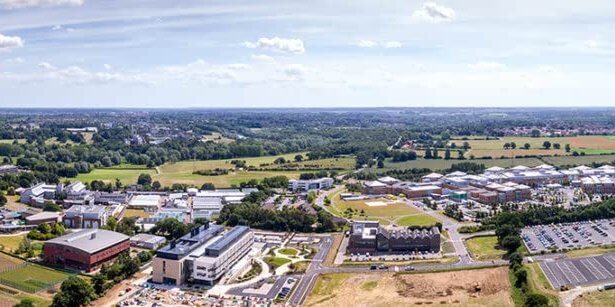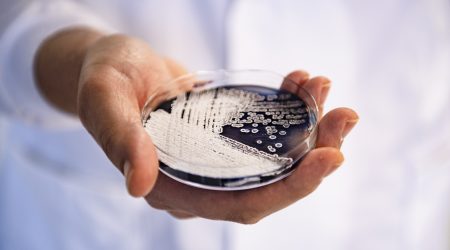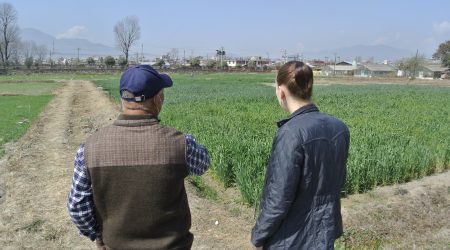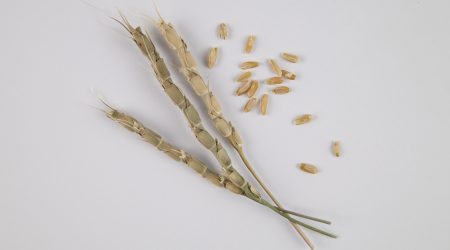Miller and Uauy named in 2020’s “highly cited” researchers list

Ten Norwich Research Park scientists, including two at the John Innes Centre, have been named in the annual Highly Cited Researchers list for 2020.
The Clarivate Web of Science Group list, now in its seventh year, recognises influential researchers globally. The list represents researchers ranking in the top 1% by citations for their specific fields of expertise.
The citation analysis identifies influential researchers as determined by their peers around the globe – those who have consistently won recognition in the form of high citation counts over the last decade. Becoming recognised, highly cited and influential in a particular research field is earned by delivering high quality research throughout a researcher’s career.
This list is a measure of the exceptional impact that scientists at Norwich Research Park are making globally. Those named include a large number of ‘cross-field’ researchers, reflecting the Park’s excellence in cross-disciplinary research.
The ten scientists named on the Highly Cited Researchers 2020 list are:
- Professor Tony Miller – who studies membrane transporters with plant nutrition to improve the efficiency of fertiliser use. As part of his research Professor Miller has developed soil sensors for monitoring nitrogen content of soils. His group works with soil scientists and microbiologists to improve nitrogen use efficiency in crops.
- Professor Cristobal Uauy– analyses genetics and genomics to improve yield, disease resistance and crop quality in wheat. The Uauy group aims to understand the mechanisms by which genes function in order to develop strategies to deploy these genes into commercial varieties of wheat.
- Professor Sophien Kamoun, The Sainsbury Laboratory (TSL) – studies the interactions between plants and filamentous pathogens, notably the Irish potato famine organism Phytophthora infestans and the rice and wheat blast fungus Magnaporthe oryzae.
- Professor Cyril Zipfel, TSL – studies the molecular basis of plant innate immunity and aims to decipher signalling events linking the perception of pathogen-associated molecules to the establishment of immunity.
- Professor Jonathan Jones, TSL – studies how plants resist disease, and how pathogens evade or suppress the detection and resistance mechanisms of their plant hosts.
- Professor Phil Jones, University of East Anglia (UEA) – study of climate change and the detection and attribution of climate
- Professor Carlos Peres, UEA – study of tropical forest conservation ecology and biodiversity responses to land use change
- Royal Society Research Professor Corinne Le Quéré, UEA – study of the interactions between climate change and the carbon cycle
- Professor David Livermore, UEA – study of the evolution and dissemination of antibiotic resistance and its relationship to antibiotic prescribing
- Professor Robert Nicholls, Tyndall Centre for Climate Change Research, UEA – study of long-term coastal engineering and management, particularly the issues of coastal impacts and adaptation to climate change
Over 6,000 highly recited researchers from just under 60 nations are named in the 2020 list in 21 fields of sciences and social sciences. The UK is ranked third overall with 517 highly cited researchers behind the US (2,737) and China (636).
The methodology that determines the ‘Who’s who’ of influential researchers draws on the data and analysis performed by bibliometric experts from the Institute for Scientific Information at the Web of Science Group.
David Parfrey, Chief Executive, Norwich Research Park said:
“Once again Norwich Research Park has been recognised globally for the excellence of its science-based research. I’d like to congratulate the nine researchers on behalf of all their colleagues on the Park. It demonstrates the research strength and outstanding achievements of the work undertaken by the Park’s Partner organisations.
Our Park’s researchers innovate and develop knowledge that makes our world and its people healthier and more secure – helping to change lives and rethink society. The world is facing immense challenges; the COVID-19 pandemic, food shortages and climate change to name but three.
Norwich Research Park is the place where some of the answers to these global challenges can be found and where ground-breaking research and business success go hand-in-hand.”



